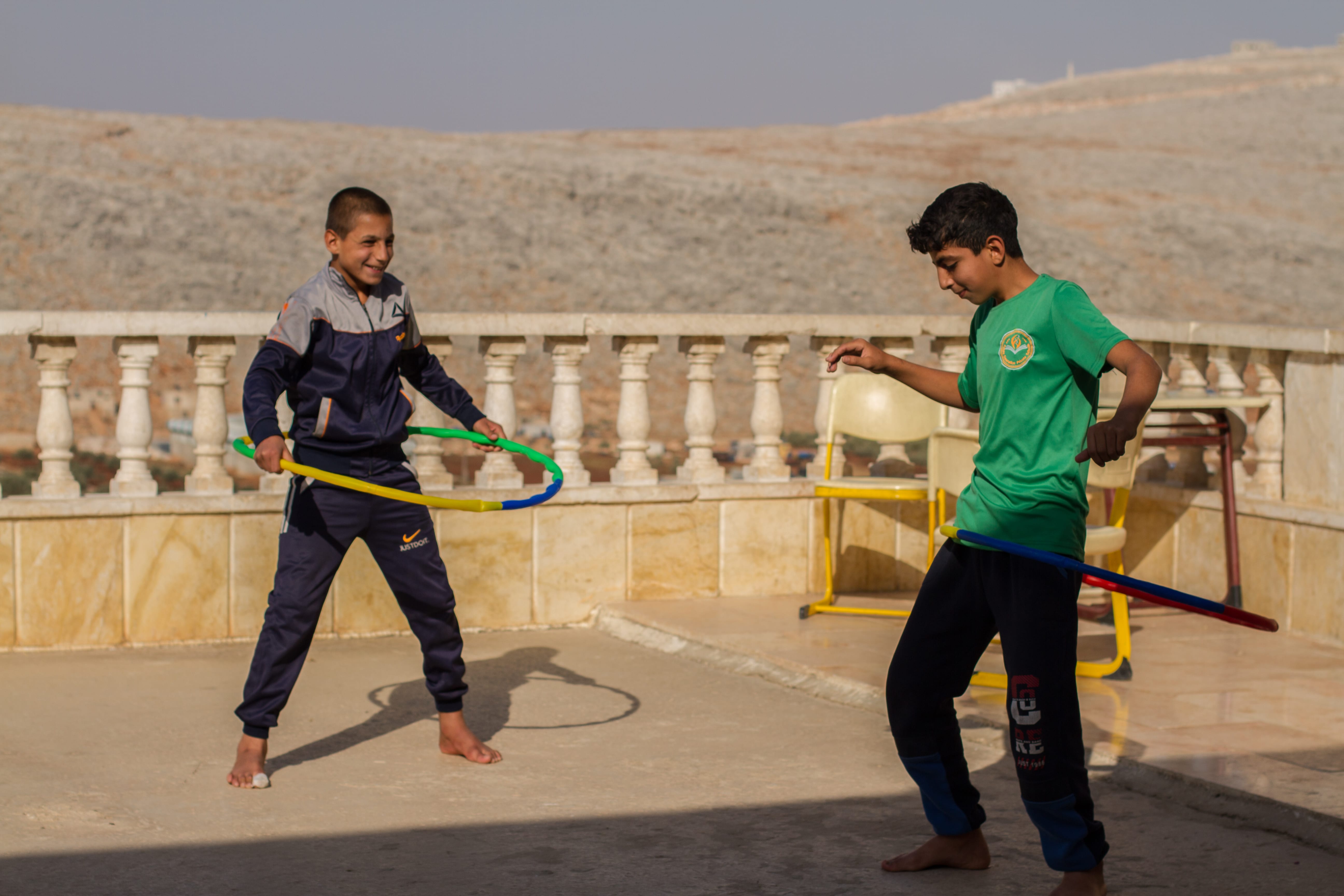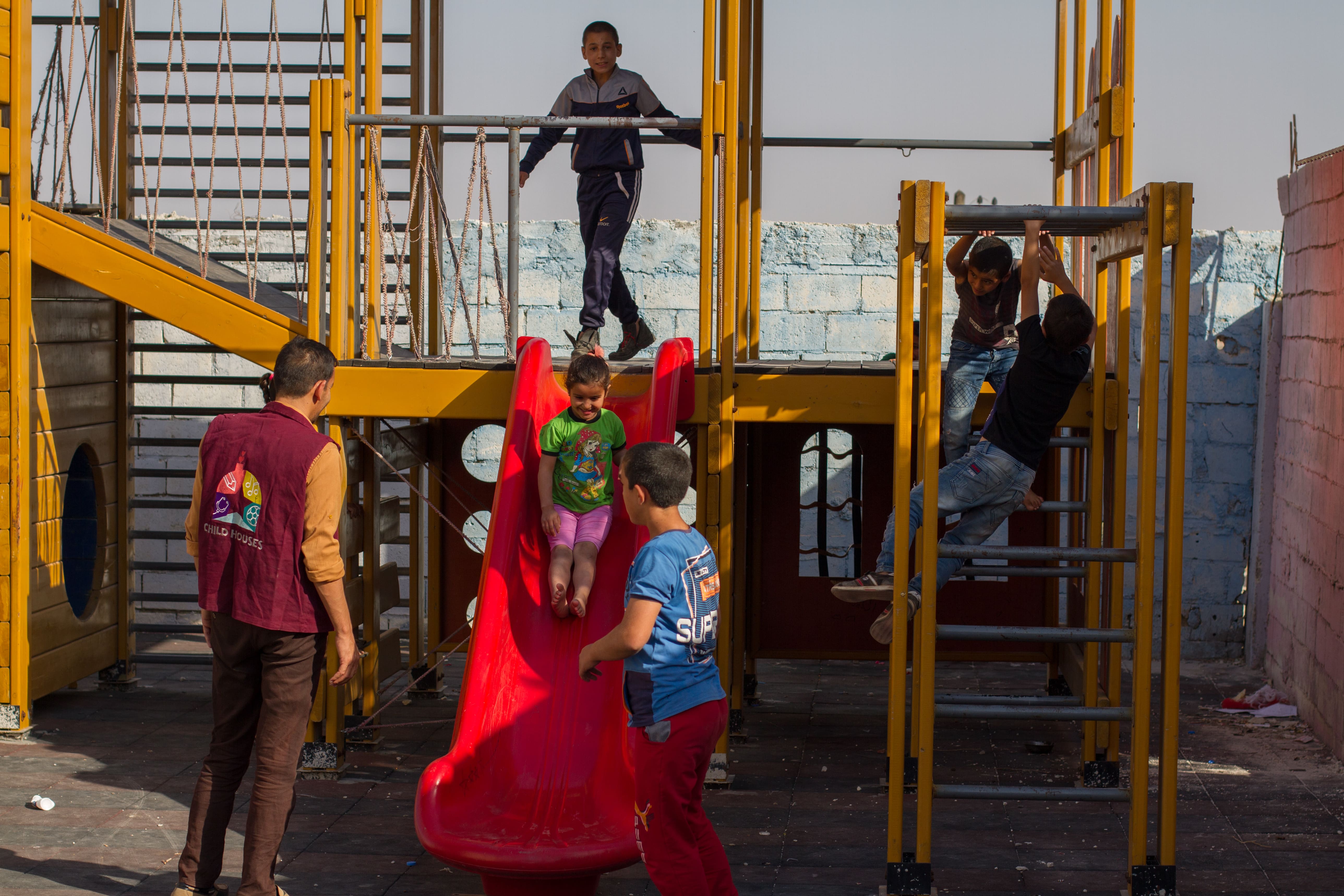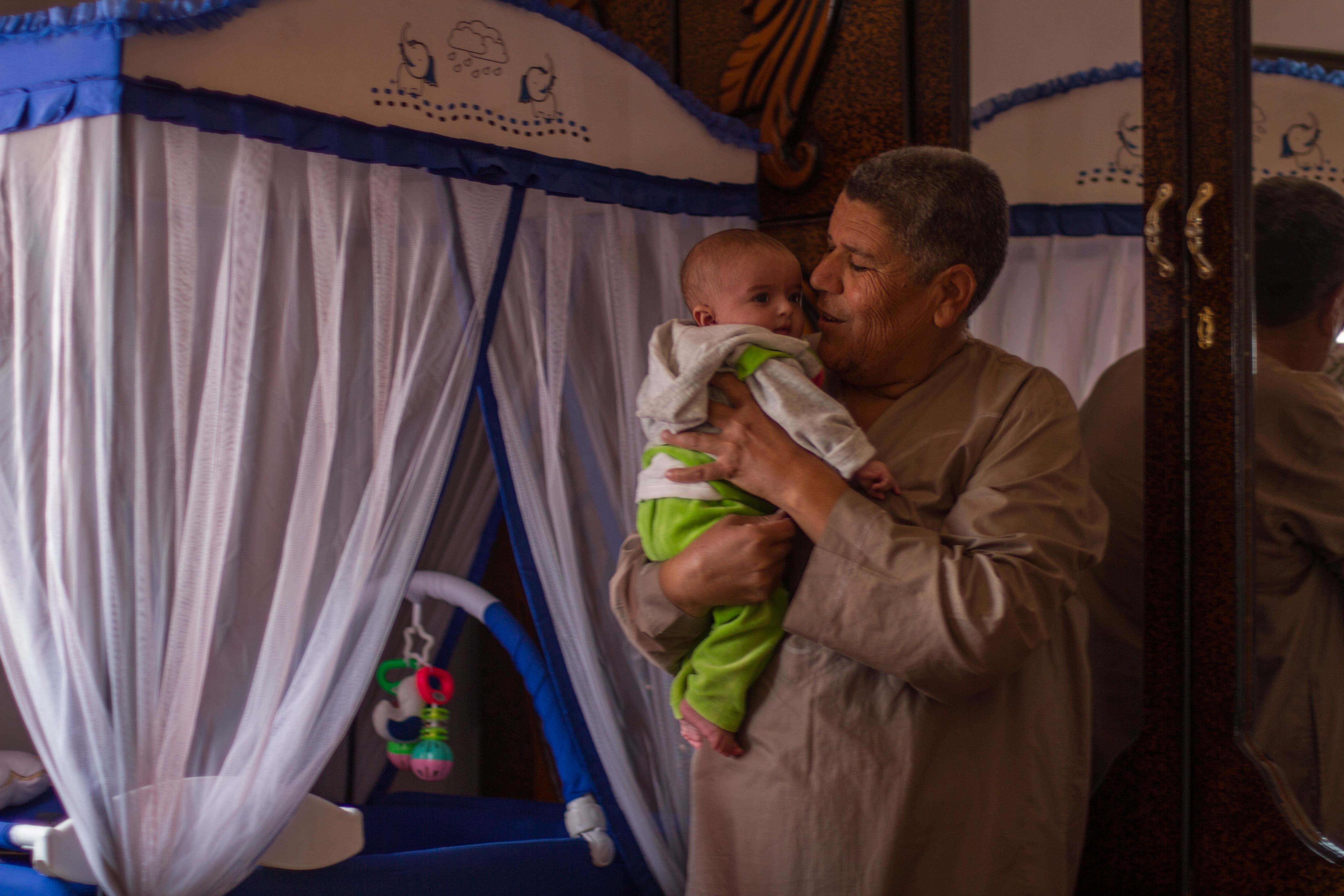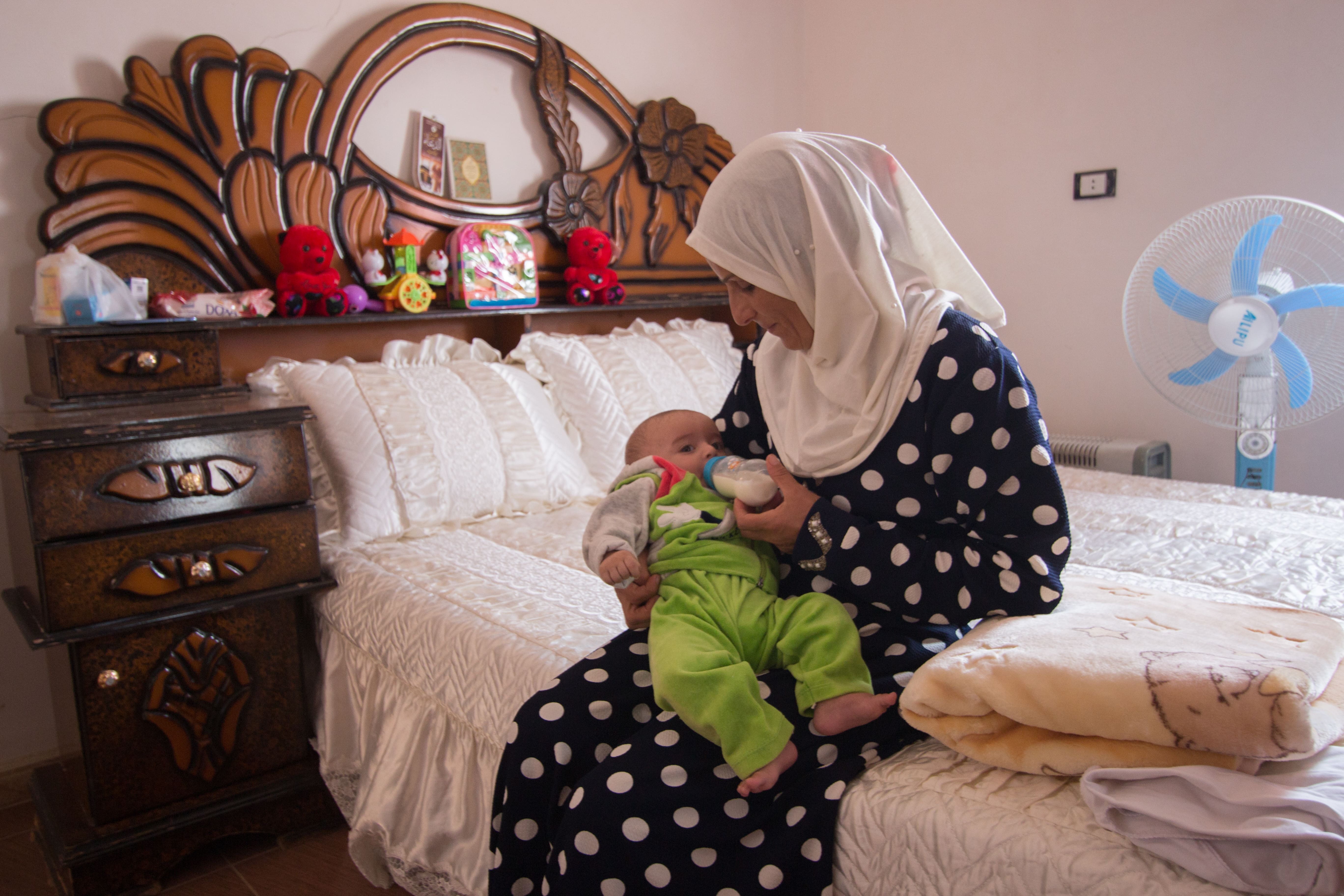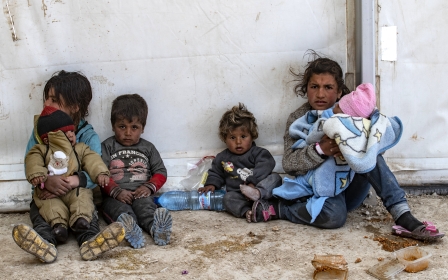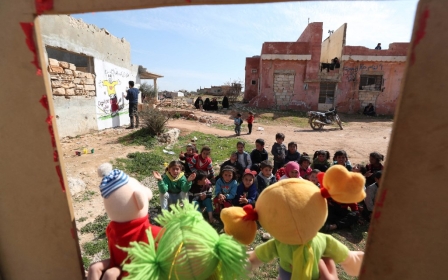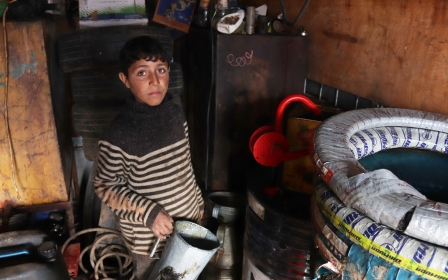Syria: Shelter gives new home to children separated from parents during war
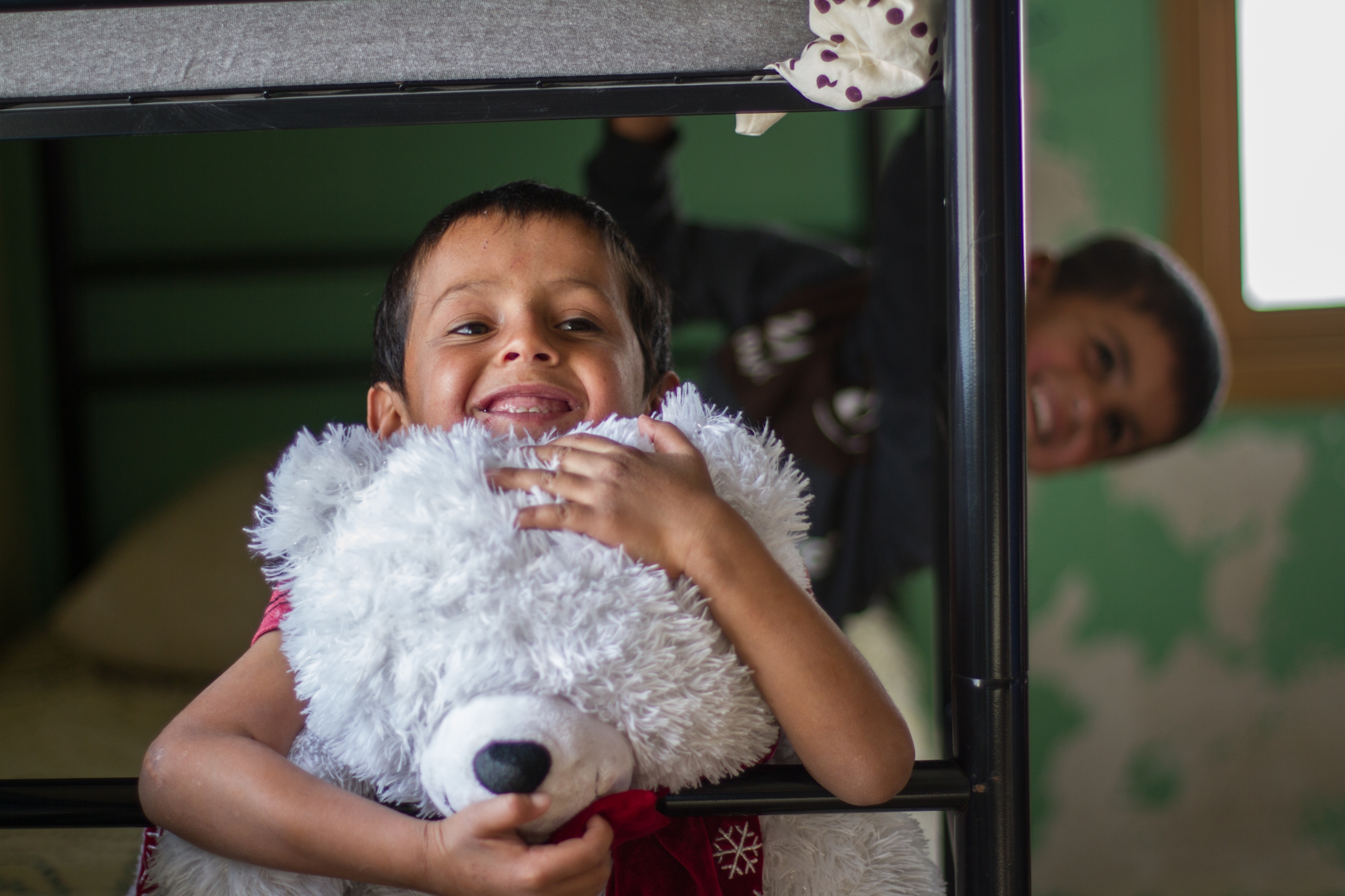
Child abandonment has surged in northern Syria due to the continuous instability and the high costs of living in the war-torn country.
As many parents have abandoned their children in the streets, hoping someone would look after them, a new generation of children with unknown parents has emerged.
The Dar Al-Tifel (Children’s Home) organisation is the only NGO in northern Syria that works to provide a home for these children.
It provides the abandoned children with education, entertainment, housing and food, and enables families to take care of them and live with them. The organisation also helps to find the children's real parents.
Younis Abu Amin, supervisor of the case management team in Dar Al-Tifel, told Middle East Eye that the centre accommodates about 50 children of unknown parentage and the homeless.
Every month, an average of four children arrive at the centre, he said.
It has several departments. The shelter department is dedicated to providing basic services for the children, including food, drinks, and a place to sleep.
There is also a psychological support department and an educational department, through which the management provides children with entertainment and tutorials about general issues, such as the Covid-19 pandemic.
Abu Amin adds that after the child receives these services, the centre begins a process of family unification, where it tries to search for the child's real family.
If the family is not found, the centre searches for other relatives, and if that doesn’t work, it looks for an alternative foster family, already registered with the centre, to sponsor the children. Those interested are then vetted, in accordance with the children’s specific conditions.
“I have lived in this center for about a year and six months, and I did not know any information about my parents,” Naim, one of the children in the center, tells MEE.
“I met many friends here whose condition is similar to mine and they do not know their family. I hope they find their family.”
He adds that he recently learned that his father lives in Turkey after the organisation searched for him, but he could not go to him because the Syrian-Turkish border was closed.
“I hope someone can help me meet my father,” he says.
A new family
Adel Hamam from the village of Kafr Houm in the western countryside of Idlib tells MEE that he sponsored a child from the Dar Al-Tifel organisation after finding out about his infertility.
“My wife and I have wanted to sponsor a child for many years because I did many tests and it turned out that I was unable to have children,” he says.
“Then I sponsored this child through Dar al-Tifel, and I’ve been very happy with the decision. He will fill our house, and we will be rewarded by God for doing that.”
“I hope to raise him in a good way.”
“Had God blessed me with other children before him, I would have never treated them any differently. He is my first joy after 20 years of waiting. I will give him a lot of love and affection.
“If one day he finds his family and wants to go to them, it will be a very difficult feeling. I will grieve a lot.”
This article is available in French on Middle East Eye French edition.
Middle East Eye propose une couverture et une analyse indépendantes et incomparables du Moyen-Orient, de l’Afrique du Nord et d’autres régions du monde. Pour en savoir plus sur la reprise de ce contenu et les frais qui s’appliquent, veuillez remplir ce formulaire [en anglais]. Pour en savoir plus sur MEE, cliquez ici [en anglais].


